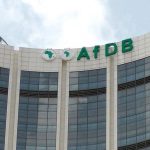Abacha’s Loot: World Bank Seeks Additional Time To Release Details
Featured, Latest Headlines, News Tuesday, August 9th, 2016
By Ayo Balogun
BALTIMORE, MD (AFRICAN EXAMINER) – The Wiorld Bank has again requested for more time to release details on the spending of recovered loot by late Head of State General Sani Abacha (rted).
This followed the bank’s decision to refer “portion of appeal by the Socio-Economic Rights and Accountability Project (SERAP) to the Bank Archives Unit for processing for public access.”
In a letter dated 8th August, 2016 and sent to SERAP, the World Bank said, “In response to your request under AI4288, we would like to inform you that we are working on your request as referred to the Archives by the Access to Information Committee in its decision on the appeal and need additional time to provide a more comprehensive response. We regret any inconvenience for this delay.”
This development was disclosed on Tuesday in a statement issued by SERAP’s Executive Director, Adetokunbo Mumuni.
The World Bank’s request for more time followed the appeal SERAP lodged with the Bank on 5th February, 2016 on the ground that the Bank’s decision on its initial request did not reveal “important portions of the information requested on how Abacha loot was spent.”
This is the second time the World Bank is asking for additional time to provide SERAP with details of spending of Abacha loot.
It would be recalled that the bank in a letter dated 15th October, 2015 and signed by Ann May of the Access to Information Team said that “In response to your request under AI3982, we would like to inform you that we are still considering your request and need additional time to provide you with a more comprehensive response.”
According to Mumuni, the Bank Access to Information Committee (AIC) in its decision on appeal issued in Case number AI3982-A dated 29th April, 2016 held that although the appeal by the organization was not filed within 60 days of the bank’s decision as required by its Access to Information Policy, SERAP appeal nonetheless “contains a request for additional information, not previously submitted by the requester, and which the Bank has neither considered nor denied. Accordingly, the AIC refers back to the Archives Unit this portion of the appeal for processing for public access.”
SERAP said: “The portion of the appeal which the Bank has now referred to its Archives Unit for public access include information on: evidence and list of the 23 projects allegedly completed with recovered Abacha loot, and whether the 23 projects where actually completed; and what became of the 2 abandoned projects; evidence and location of the 8 health centers built with recovered Abacha loot reviewed by the World Bank; and evidence and location of the 18 power projects confirmed by the World Bank.”
“Other aspects of the spending of Abacha loot the Bank referred to its Archives Unit for processing for public access are: information on: how the $50mn Abacha loot received before 2005 kept in the special account was spent; evidence and location of schools which benefited from the Universal Basic Education (UBE) program in the amount of NGN24.25bn; and evidence and location of the 13 road projects completed with the recovered Abacha loot, including the names of the 3 of the largest road and bridge projects in each geo-political zone.”
The World Bank AIC appeal decision reads in part: “Summary of Decision: The Access to Information Committee (“AIC’) found that the appeal is not properly before the AIC for consideration. The appeal in this case was filed 75 calendar days after the Bank’s initial decision. Under the Bank Policy on Access to Information, appeals to the AIC must be filed within 60 calendar days of the Bank’s decision.”
“Notwithstanding the above, the AIC found that the appeal contains a request for additional information, not previously submitted by the requester, and which the Bank has neither considered nor denied. Accordingly, the AIC refers back to the Archives Unit this portion of the appeal for processing for public access.”
“The Decision Facts: On September 21, 2015, the requester submitted a request (“Request”) for “documents relating to spending of recovered assets stolen by Late General Sani Abacha and the Bank’s role in the implementation of any projects funded by the recovered assets and any other on-going repatriation initiatives on Nigeria with which the Bank is engaged.” On November 25, 2015, the World Bank (“Bank”) responded to the Request by providing the requester with 11 documents.
“On February 8th, 2016, the secretariat to the Access to Information Committee received an application (“Application”) appealing the Bank’s decision. The Application challenges the Bank’s decision on both a “violation of policy” and “public interest” basis. The Application states, in relevant part, the following: [Intentionally omitted] is sending this Appeal to the AI Appeals Board against the World Bank decision dated 25 November 2015 to provide patently insufficient information on the spending of recovered stolen funds by the late General Sani Abacha.”
“We consider this a serious violation of the AI Policy, as it amounts to improper or unreasonable restriction of access to information.[…]Following receipt of several documents from the World Bank totaling over 700 pages on the Abacha loot, (intentionally omitted) commenced independent investigations and verification of some of the information supplied with appropriate agencies and institutions of government.”
“Findings and Related Decision: In reviewing the Application in accordance with the AI Policy, the AIC considered: (a) the Request; (b) the Application; (b) the date of the Bank’s initial decision; and (c) the date when the Application was filed before the AIC. In this case, the Bank’s response was issued on November 25th, 2015. The Application was filed with the AIC on February 8th, 2016, i.e., 75 calendar days after the Bank’s initial decision.”
“Under the Bank Policy: Access to Information, July 1, 2015, Catalogue No. EXC4.01-POL.01 (“AI Policy”), appeals to the AIC ‘must be filed (…) within 60 calendar days of the Bank’s decision to deny access to the requested information’ (see AI Policy, at Section III.C.8 (b) i). In view of this requirement, the Application is not properly before the AIC for consideration.”
“Notwithstanding the above, the AIC found that the Application contains a request for additional information, not previously submitted by the requester, and which the Bank has neither considered nor denied. Accordingly, the AIC refers back to the Archives Unit this portion of the Application for processing as a new request for public access.”
Related Posts
Short URL: https://www.africanexaminer.com/?p=34807






















